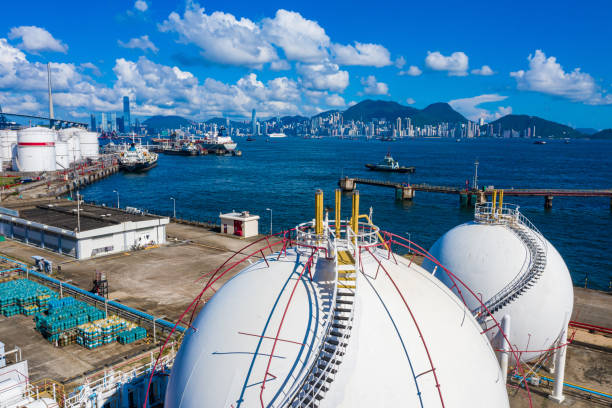Fueling Efficiency and Reliability: Propane’s Power in Port Operations

Efficient and reliable power is a vital component of port operations worldwide. While research into offshore energy and alternative fuels advances, it’s necessary to consider the available resources for providing both primary and backup power for ports. From portable generators to shore power and fleet vehicles, alternative energy sources such as propane offer versatility and reliability, making them suitable for various port applications.
Propane Power Generation
Whether planned or unforeseen, power outages can disrupt port operations at any time, whether intended or unexpected. To mitigate such disruptions, port authorities should explore diverse power generation options.
Portable propane generators offer flexibility in port settings, delivering power wherever needed, whether connected to the grid or not. Unlike diesel or other fuels, propane doesn’t degrade over time, ensuring that generators remain ready.
For permanent installations, propane standby generators activate within seconds of a power interruption, providing sufficient energy to sustain port operations for days. This reliability surpasses solar or wind-powered systems, making propane an excellent backup or primary shore power choice.
Shore Power Solutions
While docked, shore power supplies electricity to ships, allowing vessels to maintain essential functions without running auxiliary engines and burning diesel fuel. Typically, shore power connects to the grid, but microgrids can also power it.
Microgrids are localized energy grids with autonomous control capabilities. They can disconnect from the primary grid and operate independently. Microgrids incorporate various distributed energy sources, such as solar panels, wind turbines, combined heat and power, and generators. These sources produce power during sudden outages or planned downtime, enhancing the reliability and resilience of the energy supply, which is crucial for aging and vulnerable grids.
Propane-Powered Port Vehicles
Propane demonstrates its efficiency and reliability in powering port vehicles. For instance, MAFI has introduced a propane-powered port tractor that matches the performance of its diesel counterparts. Thanks to quick refueling, it can operate continuously for an 8-hour shift without slowing down. In contrast, electric port tractors may require 4-6 hours to fully recharge.
Propane not only powers port vehicles but also efficiently recharges electric ones. Innovative electric vehicle charging solutions utilize propane-powered generators, often combined with wind and solar energy, to restore a wide range of vehicles, including forklifts and port tractors, independently of the electric grid. Furthermore, solutions like Propane Fueling Solutions’ portable dual-purpose standalone fueling system allow fleets with various alternative fuel vehicles to refuel with propane autogas or recharge with DC level 3 fast chargers.
As advancements in alternative energy technologies progress, ports have the opportunity to achieve greater efficiency and reliability. Propane-based grid technology and cargo handling equipment empower port authorities to take significant steps toward realizing these goals today.














